Leasehold vs Freehold: Understanding the Key Differences in Property Ownership
Leasehold vs Freehold: Understanding the Key Differences in Property Ownership
When purchasing property, one of the most important aspects buyers need to understand is the type of ownership attached to it. Two common forms are freehold and leasehold. Each offers different rights, responsibilities, and long-term implications for investors or homeowners.
What is Freehold?
Freehold ownership means you own the property and the land it stands on outright. There is no time limit on ownership, and the property can be passed on to heirs or sold at any time without restrictions.
Advantages of Freehold:
Permanent ownership with no expiration date.
More control over the property.
No ground rent or lease renewal fees.
Higher resale value due to unlimited tenure.
Disadvantages of Freehold:
Higher initial purchase price compared to leasehold.
Full responsibility for property maintenance and land-related issues.
What is Leasehold?
Leasehold ownership means you own the property only for a fixed period, as stated in the lease agreement, while the land itself belongs to a landlord (also called the freeholder). Leases often range from 30 to 99 years, and in some countries, even up to 999 years.
Advantages of Leasehold:
Lower purchase price compared to freehold.
Often located in prime city areas where freehold land is scarce.
In some cases, building maintenance is managed by the landlord.
Disadvantages of Leasehold:
Ownership is temporary; when the lease ends, ownership reverts to the freeholder.
Lease renewal can be costly and complicated.
May involve ground rent, service charges, or restrictions on renovations.
Property value decreases as the lease gets shorter.
Investment Perspective
From an investment standpoint, freehold properties generally offer stronger long-term security and appreciation. Leasehold properties, however, can be attractive for short- to medium-term investments, especially if they are located in high-demand urban centers.
Investors should carefully review lease terms, including the remaining years, renewal costs, and restrictions. In some markets, properties with leases under 50 years may become difficult to finance or resell.
Which One Should You Choose?
Freehold is ideal for long-term investors, families, or anyone seeking full control and permanent ownership.
Leasehold may be suitable for buyers with budget constraints, those who prefer lower upfront costs, or investors seeking properties in prime city locations.
The choice between leasehold and freehold depends on your financial goals, investment horizon, and lifestyle needs. Freehold provides certainty and long-term value, while leasehold offers affordability and location advantages but comes with limitations. Understanding these differences will help you make smarter property investment decisions.

Date: October 06, 2025
The global property sector enters 2025 with both optimism and uncertainty. While the demand for housing and commercial spaces continues to grow in many regions, the industry faces a complex set of challenges driven by economic shifts, technological disruption, and environmental concerns. Here are th ...

Date: October 06, 2025
In recent years, the concept of co-living has gained significant traction among young professionals, especially in urban centers where housing prices continue to soar. Co-living offers an affordable and flexible alternative to traditional renting by combining private living spaces with shared amenit ...

Date: October 06, 2025
The global property investment landscape is undergoing a profound transformation, driven by technological innovation, demographic shifts, and evolving economic dynamics. As we move further into the 2020s, investors are rethinking traditional strategies and adapting to new realities that will shape t ...

Date: October 07, 2025
In recent years, homeownership among younger generations particularly Millennials and Gen Z has declined significantly. While older generations often viewed buying a home as an essential life milestone, many young adults today are choosing to delay or even avoid it altogether. But why is this happen ...

Date: October 07, 2025
In recent years, the demand for pet-friendly housing has surged, especially among millennial homeowners and renters. For this generation, pets are not just companions they are part of the family. As a result, many millennials are prioritizing homes that can comfortably accommodate their furry friend ...
Ala Land Bali — a magical place for the real you
BECOME PART OF THE HISTORY Share your contact details, and our manager will reach out
with full project details

